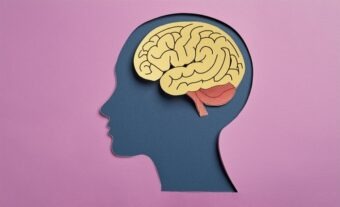How to Keep Your Brain and Memory Sharp with Age
Posted: January 14, 2025 | By: Shanon Peckham

Cognitive decline is a natural part of aging, but it can impact you much earlier in life than you might think. Though mental speed reportedly begins to decline after age 60, by age 45, as many as 10-40% of Americans report worsening confusion and memory loss.1,2,3 By age 70, as much as 66% of the population may experience cognitive impairment, mild or severe.4 That’s more than half the population! For those with severe impairment conditions like Alzheimer’s, which affects one in nine people over 65, the damage starts decades before diagnosis or obvious symptoms.5
Aside from the frustration of not being able to remember the important stuff or do tasks as quickly, unchecked cognitive decline can set you up for an expensive or short-lived retirement. The average life expectancy for those 65 and older who have been diagnosed with Alzheimer’s dementia, for example, is only four to eight years.5 And while family caregiving, financial assistance programs, and additional support can help reduce overall costs, dementia patients usually pay significantly more out of pocket than their peers without dementia (in 2016 dollars, $203,117 vs $102,955 for the last seven years of life). At the minimum, severe cognitive decline will likely cost you around $10,000 out of pocket every year, which you could be putting towards investments, housing, travel, inheritance for family, and other meaningful projects instead.5
This is why it’s SO important to take care of your brain, in all the ways that will protect and support it as you age. To save you time and mental energy, we’ve put together a list of several different ways you can support long-term cognitive health and longevity.
Make Nutritious Choices
Foundational nutrition is the key to better health and longevity, but there are few specific nutrients that can help your brain stay on the right track. Vitamins and minerals are a good place to start; they help support brain development and function. Make sure you’re getting plenty of B Vitamins,6 Vitamin D,7,8 and Vitamin C9,10 in particular to support optimal cognitive and neurological health. Next, grab some Essential Fatty Acids (EFAs). Not only are these good for heart health, they may also fight inflammation, support a healthy mental state, and protect your brain from damaging diseases.11,12
Some of these nutrients our bodies produce naturally, but most of them you will need to get through diet. That can look like eating healthy, nutrient-dense meals (for recipes and tips, visit our YFast page!) and taking supplements for areas you might be lacking in. For example, if you’re vegan and unable to eat oily fish, you may be missing out on vital EFA’s and omegas;13 our Ultimate Multi-EFA™ provides plant-based EFAs! If you don’t get enough vegetables, you can still enjoy the benefits of them through supplemental fiber and greens. Beyond these basics, certain botanicals offer additional benefits for your noggin. We recommend checking out Renu iQ™, Synaptiv™, and Ultimate Memory FX™ to explore the benefits of these unique phytonutrients.
Last but not least, stay away from cigarettes, junk food, empty-calorie snacks, synthetic ingredients, and alcohol if you can! Read more in our detox guide about why these are bad for your health.
Keep Learning
Like your muscles,14 the less you use your brain, the more abilities you lose, like attention span, recall, and mental energy.15 One of the best ways to stay sharp and maintain cognitive longevity is to invest in continued education. Learning helps our brains build new neural networks and cells, basically rewiring how we think about things with every new experience.16,17,18 Learning can also help protect us from neurodegenerative diseases like Alzheimer’s and bolster our cognitive reserve, helping us to be less forgetful and think faster when it counts.19,2 Need inspiration? Experts recommend playing games, learning a new skill or language, painting or drawing, and meditation.20,21
We have to address the elephant in the room: screen time. On average, we spend over two hours every day scrolling on social media,22 three hours per day watching television,23 and upwards of six hours online in general each day.24 Unfortunately, whether you’re window shopping, doom-scrolling, or binge-watching hours of your favorite show, your extended screen time and consumption of mindless entertainment are both hurting your brain long-term.25,26,27 The best way to avoid this so-called “brain rot”15 from too much screen time is to spend less time around screens and reinvest some of your scrolling time back into learning. Microlearning,28 as seen in apps like Duolingo, can be a healthier replacement, especially if you like short-form, gamified content.
Say Yes to Mushrooms
Edible mushrooms have been used medicinally for many years by cultures around the world to help treat a variety of conditions. Today, research is identifying exactly how they can help us thrive! On the surface level, most are loaded with fiber, vitamins, minerals, healthy fats, and EFAs, all of which are necessary for optimal health and a nutritious diet. They also serve as a low-calorie source of protein and energy, perfect for vegetarians and vegans!29,30 Beyond their nutritional value, mushrooms are also full of bioactive and pharmacological nutrients, like antioxidants, which provide additional potential health benefits.31
Adaptogens are particularly helpful for combating everyday stress and brain fog. Where a prolonged state of fight or flight can sabotage your recovery from stress, these special herbs, fungi, and roots can help your body resist stress and restore your nervous system’s natural balance. In other words, adaptogens protect your body from the damage of stress and may even give you a mood boost.32,33,34 Many adaptogens also act as nootropics, promoting a healthy brain and nervous system; they’ve even been demonstrated to combat conditions like dementia.35,36 They can also boost your energy levels, increase your ability to focus, and support healthy memory function when you need it most37 – which is exactly why we added them to our Tazza Di Vita™ Café Ganoderma instant coffee and the Rise blend of our 3.0 Rise & Restore™ advanced dual supplement system!
Read more about these amazing mushrooms: The Magic of the Mycelium
Try Intermittent Fasting
If you’ve been following our blog for a while now, you already know how beneficial Intermittent Fasting (IF) can be for metabolic health and overall health. It turns out that this eating schedule is just as beneficial for your brain! According to recent research, IF can help generate neurons, improve synaptic plasticity, boost memory, improve executive function, and protect you from neurological disorders (like epilepsy).38,39,40,41,42 It may also reduce the speed of brain aging, improve stress resistance, and offer potential benefits for mood or anxiety symptoms.40,41,42
Though scientists are still digging into exactly how IF helps our cognition and brain, you may notice a difference just through mindful, disciplined eating. Our YFast Intermittent Fasting program, for example, helps you prioritize a nutrient-rich diet and optimal eating times for maximum benefits. When you put foundational nutrition, healthy snacking recommendations, and research-backed advice to use, you may be surprised how great you can feel and how fast that brain fog clears! What you eat and when really makes a difference.
Read more about Intermittent Fasting on our blog!
Prioritize Good Sleep
The benefits are worth it! Your body heals itself overnight, including all of the systems that keep your brain going strong.42 A process called autophagy, which occurs anytime we fast/aren’t processing food, helps our bodies clean up dead and damaged cells, potentially slowing cell aging and aiding in the prevention of cancer.43,44,45 Likewise, the brain also flushes itself using the glymphatic system overnight, protecting us from neurodegeneration and brain diseases.46,47 Refreshing your brain with at least seven hours of sleep can also improve your memory, reduce brain fog, protect you from neuron degeneration, and boost your cognitive performance.48 Thanks to our bodies’ complicated self-healing mechanisms, good sleep helps us feel energized, focused, and ready to take on the day.
By contrast, just think of how you feel when you only get a few hours of sleep – falling asleep at work or school isn’t healthy or normal! If you want to stay cognitively sharp and avoid all of the other negative health impacts of sleep deprivation, you should prioritize getting a good night’s sleep every night. Start with a better bedtime routine; you can also try a holistic sleep supplement on nights when your brain just won’t shut down.
Sources
1 Mental speed is high until age 60 as revealed by analysis of over a million participants, 2022
2 Subjective Cognitive Decline in the United States: Data from the BRFSS, Alzheimer’s Association
3 The differences between normal aging and dementia, Alzheimer Society
4 Cognitive impairment in the U.S.: Lifetime risk, age at onset, and years impaired, 2020
5 2024 Alzheimer’s Disease Facts and Figures, Alzheimer’s Association
6 B Vitamins and the Brain: Mechanisms, Dose and Efficacy—A Review, 2016
7 The Role of Vitamin D in Brain Health: A Mini Literature Review, 2018
8 Vitamin D prevents cognitive decline and enhances hippocampal synaptic function in aging rats, 2014
9 Vitamin C Fact Sheet, National Institutes of Health, Office of Dietary Supplements
10 Vitamin C and Immune Function, 2017
11 Ultimate EFA Plus™, Youngevity.com
12 Essential fatty acids and human brain, 2009
13 Best Foods for A Healthy Brain and Improved Memory, Healthline
14 Don’t let muscle mass go to waste, Harvard Medical School
15 Brain Rot: The Impact on Young Adult Mental Health, Newport Institute
16 Synaptic Signaling in Learning and Memory, 2016
19 The book of neurogenesis, Harvard Medical School
20 22 brain exercises to improve memory, cognition, and creativity, Medical News Today, 2023
21 12 ways to keep your brain young, Harvard Medical School
22 What is the average time spent on social media each day?, SOAX
24 Digital 2024: Global Overview Report, DataReportal
26 What Excessive Screen Time Does to the Adult Brain, Stanford Lifestyle Medicine, 2024
27 New study suggests that too much TV really can rot your brain, Johns Hopkins Magazine, 2021
28 Social Media and Micro-Lessons: A New Paradigm of Online Learning, 2024
29 Edible Mushrooms: Improving Human Health and Promoting Quality Life, 2015
30 Mushrooms, white, raw, FoodData Central, U.S. Department of Agriculture
31 Medicinal Mushrooms: Bioactive Compounds, Use, and Clinical Trials, 2021
32 What are adaptogens and should you be taking them?, UCLA Health
36 Neuronal Health – Can Culinary and Medicinal Mushrooms Help?, 2013
37 What are nootropics?, Alcohol and Drug Foundation
38 Intermittent Fasting: What is it, and how does it work?, Johns Hopkins Medicine
39 Fasting: What You Need to Know, Sutter Health
40 The Effects of Intermittent Fasting on Brain and Cognitive Function, 2021
41 Effects of Intermittent Fasting on Brain Metabolism, 2022
42 Brain responses to intermittent fasting and the healthy living diet in older adults, 2024
43 The Benefits of Slumber, NIH News in Health
44 Autophagy: Recycling Is Good for Your Body Too, Cedars Sinai
46 Intermittent and periodic fasting, longevity and disease, 2021
47 Are toxins flushed out of the brain during sleep?, Harvard Medical School
48 The Neuroprotective Aspects of Sleep, 2015
Posted in:






